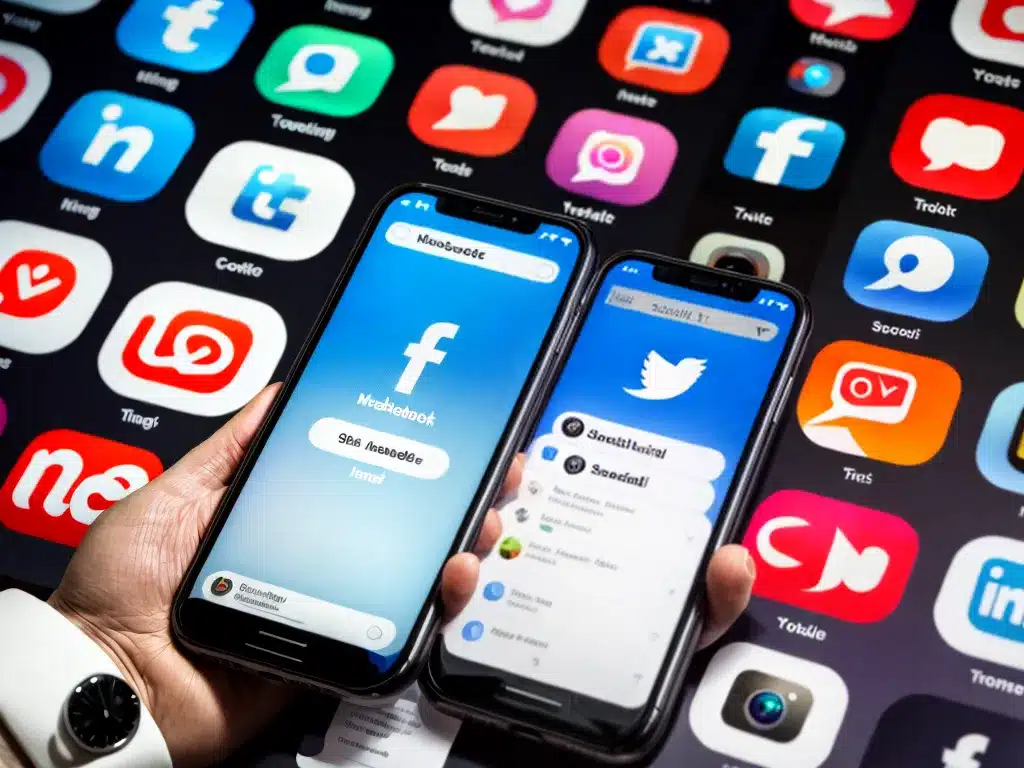
Introduction
Social media has become an integral part of our lives. Platforms like Facebook, Instagram, and Twitter allow us to stay connected with friends and family, express ourselves, and consume content. However, increased social media usage has also been linked to rising anxiety and depression rates, especially among teenagers and young adults. In this article, I will examine both sides of the social media debate and analyze whether it brings us together or pushes us apart.
Connecting People
There’s no doubt that social media has made staying in touch incredibly easy. Platforms like Facebook allow us to maintain relationships with people we may not get to see regularly. Features like posting on timelines, messaging, and video calling mean we can share milestones and daily moments with our wider social circles.
Additionally, social media gives us access to connect with people we would never have met otherwise. Niche hobby groups, local community pages, and forums allow us to bond over shared interests. For many marginalized groups, social media provides a sense of community and allows them to find their tribe.
“Thanks to Facebook groups, I’ve made friends all over the world who share my rare medical condition. We support each other in a way that would have been impossible pre-social media.”
Furthermore, social media allows us to show support during difficult times. The ‘like’ button allows us to digitally comfort someone who has experienced a loss or cheer on someone’s achievements from afar. During disasters, fundraisers organized on social media bring people together to donate time, money, and resources.
Ultimately, social media has made the world feel more connected. Geographic distances and time zones don’t matter as much when we can video chat with loved ones at the push of a button. The connections and communities formed on social media augment our in-person relationships rather than replacing them.
Fuelling Anxiety
However, social media’s ubiquity in modern life has also caused us to depend on the validation and dopamine hits it provides. The fear of missing out (FOMO) is real when friends and influencers are constantly posting highlights of their lives. Seeing heavily curated content on our feeds can make us feel like we don’t measure up.
The social comparison facilitated by social media often fuels anxiety and depression, especially in young people. Teenagers report feeling pressure to only present their best selves online, which involves carefully staging photos and obsessing over captions.
Cyberbullying and anonymous hate comments also run rampant on social platforms and have even pushed some teenagers to suicide. The 24/7 access social media provides means that bullying no longer stops when school ends.
Furthermore, the addictive nature of social media platforms negatively affects focus, sleep, and mental well-being. The infinite scroll design keeps us hooked for hours mindlessly consuming content. FOMO and notifications disrupt sleep, while research shows that increased usage directly correlates with decreased life satisfaction.
“I waste hours just scrolling every night. I told myself I would just delete the apps from my phone, but the fear of missing out is too much.”
While social media keeps us connected, it has also trapped us in an anxiety-inducing cycle of comparison and self-promotion. For many, especially the younger generation, social media does more harm than good.
Striking a Balance
So does social media connect us or fuel anxiety? The truth is likely somewhere in the middle. Used moderately in a mindful way, social media allows us to stay up to date with friends and family. But unchecked usage can negatively impact mental health and real-life relationships.
Here are some tips to strike a healthy balance:
- Limit social media to 30 mins a day
- Turn off all notifications
- Unfollow accounts that trigger FOMO or envy
- Schedule regular social media detox days
- Meet up with social media friends in real life
- Use platforms to join interest groups, not just follow influencers
The connections provided by social media are invaluable. But we have to be mindful of how much time we spend mindlessly scrolling each day. By following the above tips, we can ensure social platforms play a positive role in connecting us versus fuelling anxiety.
Conclusion
Social media has revolutionized how we interact. It has dissolved geographic boundaries, allowed us to find niche communities, and made staying in touch effortless. But it has also negatively impacted mental health through relentless social comparison and online harassment.
The key is using social media mindfully to enhance our offline relationships. Moderation and self-awareness are vital. While fears of missing out and anxiety may never disappear completely, we can manage our social media usage to maximize real social connections while minimizing the triggers that negatively impact our mental health.












